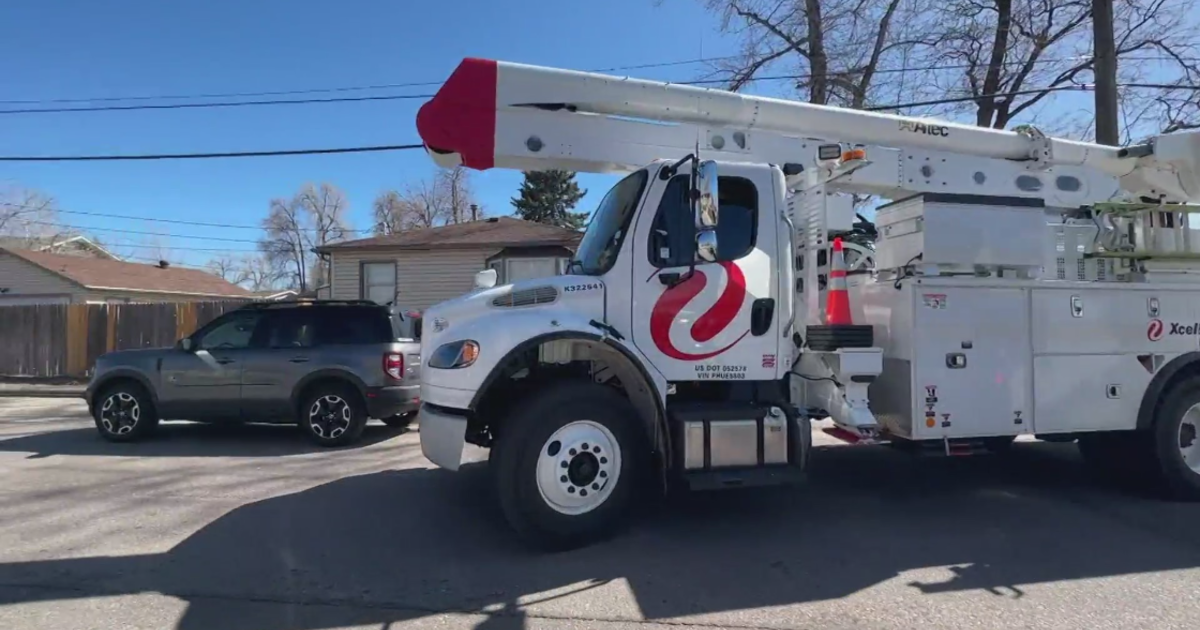Judge: Hollister Clothing Unfriendly To Disabled
DENVER (AP) - A federal judge in Denver is contemplating an injunction against Abercrombie & Fitch Co. and J.M. Hollister LLC after ruling earlier that nearly 250 of their clothing stores that cater to a hip, young clientele are unfriendly to the disabled.
The lawsuit was filed on behalf of several Colorado customers who said they had trouble getting into the retailers and that the sales countertops are too high.
Lawyer Amy Robertson, who represents the disabled in the lawsuit, compared the case with the fight against racial segregation in the 1960s.
She said that in one case, Julie Farrar, who is confined to a wheelchair, had trouble when she tried to go with her daughter through a side door of one the Colorado stores because there was no access to the front door. She and several other disabled patrons filed a lawsuit in 2009.
Attorneys for Hollister objected to the race reference in court documents that referred to the side doors as "a separate, segregated entrance," calling it "grossly inaccurate and needlessly inflammatory" and asked that it be stricken.
The stores put signs on the sides of the doors, one for "Dudes" and the other for "Bettys," and argued that they were complying with federal regulations because the side doors were accessible to the able-bodied and disabled alike, Robertson said.
"In the Jim Crow era, you had a white entrance and a colored entrance off to the side. These stores put up signs for Dudes and Bettys and called it integrated," she said Wednesday.
In a statement on the ruling Wednesday, Farrar said she was embarrassed by the experience.
"As a person who has grown up with a disability who was excluded from many public and private buildings and experiences (including) school, dining, shopping, arguably because those buildings were built pre-ADA (Americans With Disabilities Act), I am simply referencing an attitude of exclusion that was prevalent during that time," she said.
Attempts by the companies to pass off side entrances as accessible to the disabled are a sham, Farrar said.
"The (side) entrances are artificial two steps up and two steps down, built to create an atmosphere for marketing purposes. That is what makes them illegal," she said.
New Albany, Ohio-based Abercrombie & Fitch is the parent company of Hollister. The companies said earlier they complied with all construction standards in effect at the time. Lawyers for the companies did not immediately return phone calls seeking comment on Wednesday.
Judge Wiley Daniel agreed in March with the Colorado Cross-Disability Coalition that the retailers limited access for customers in wheelchairs. The only remedy under the ADA is an injunction ordering the problems to be fixed, though individuals couldn't be compensated, he said.
On Friday, Daniel received recommendations from both parties on what should be done to correct the problem.
An attorney for the company said in a response filed Friday that the judge needs to hold a hearing to determine the best way to balance the needs of both sides. The companies said it would be too expensive to redo the entry doors, requiring them to close the doors for up to 10 days, causing disruption for its customers and costing another $8 million, in addition to $11 million already spent in an effort to bring the entrances up to standards.
The companies said it is not physically possible to install ramps located in shopping malls, and closing off elevated entrances would be "the worst and least acceptable" of the three solutions because it would be confusing to customers and cause "immense ... loss in sales and revenue" and "permanent damage to the Hollister brand."
By STEVEN K. PAULSON, Associated Press
(© Copyright 2013 The Associated Press. All Rights Reserved. This material may not be published, broadcast, rewritten or redistributed.)



